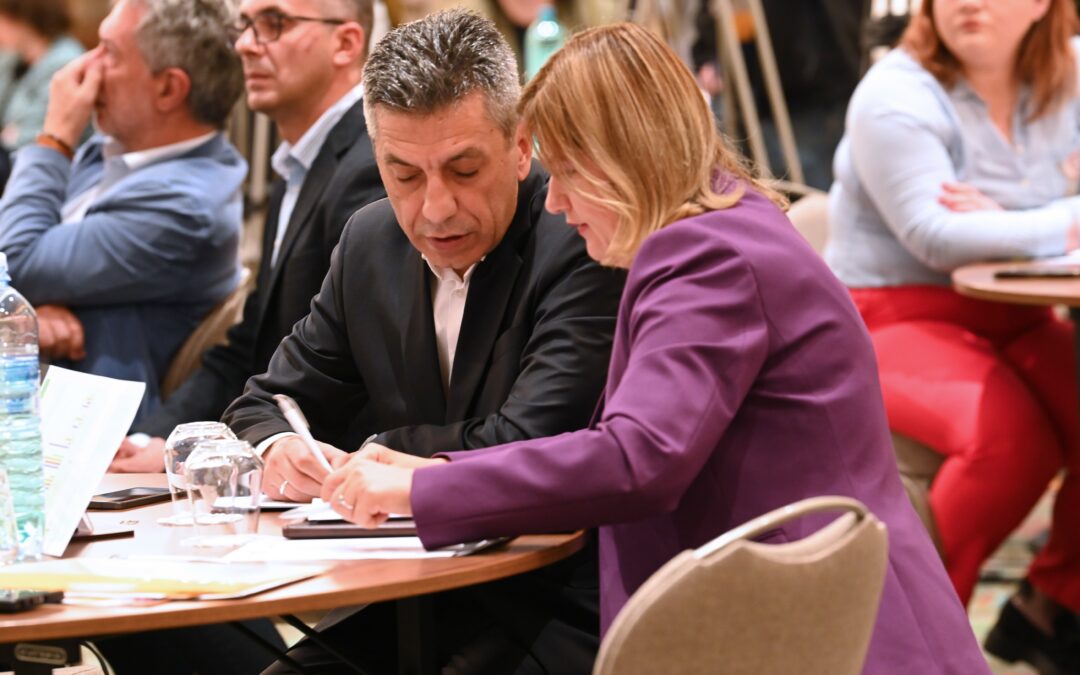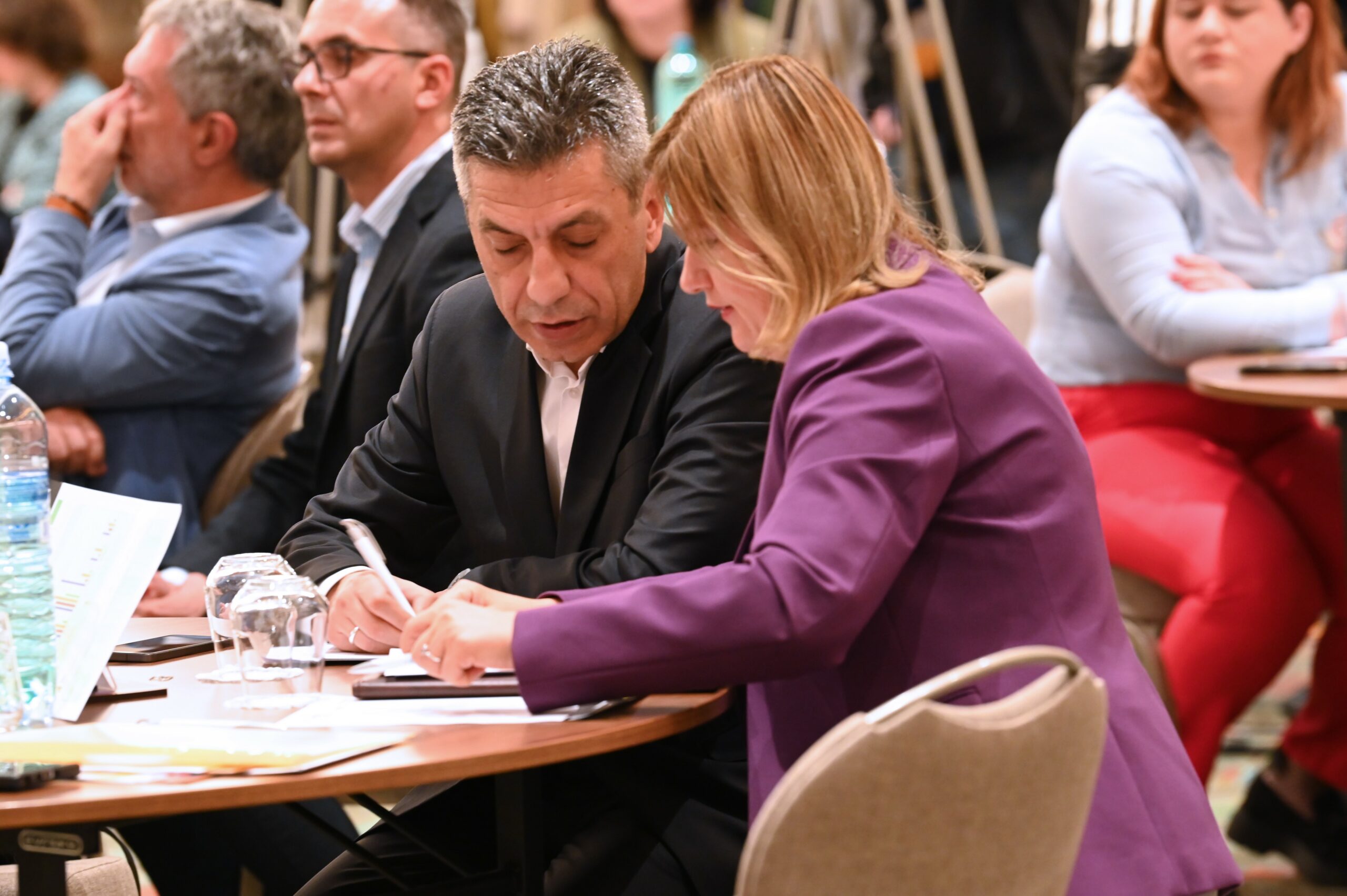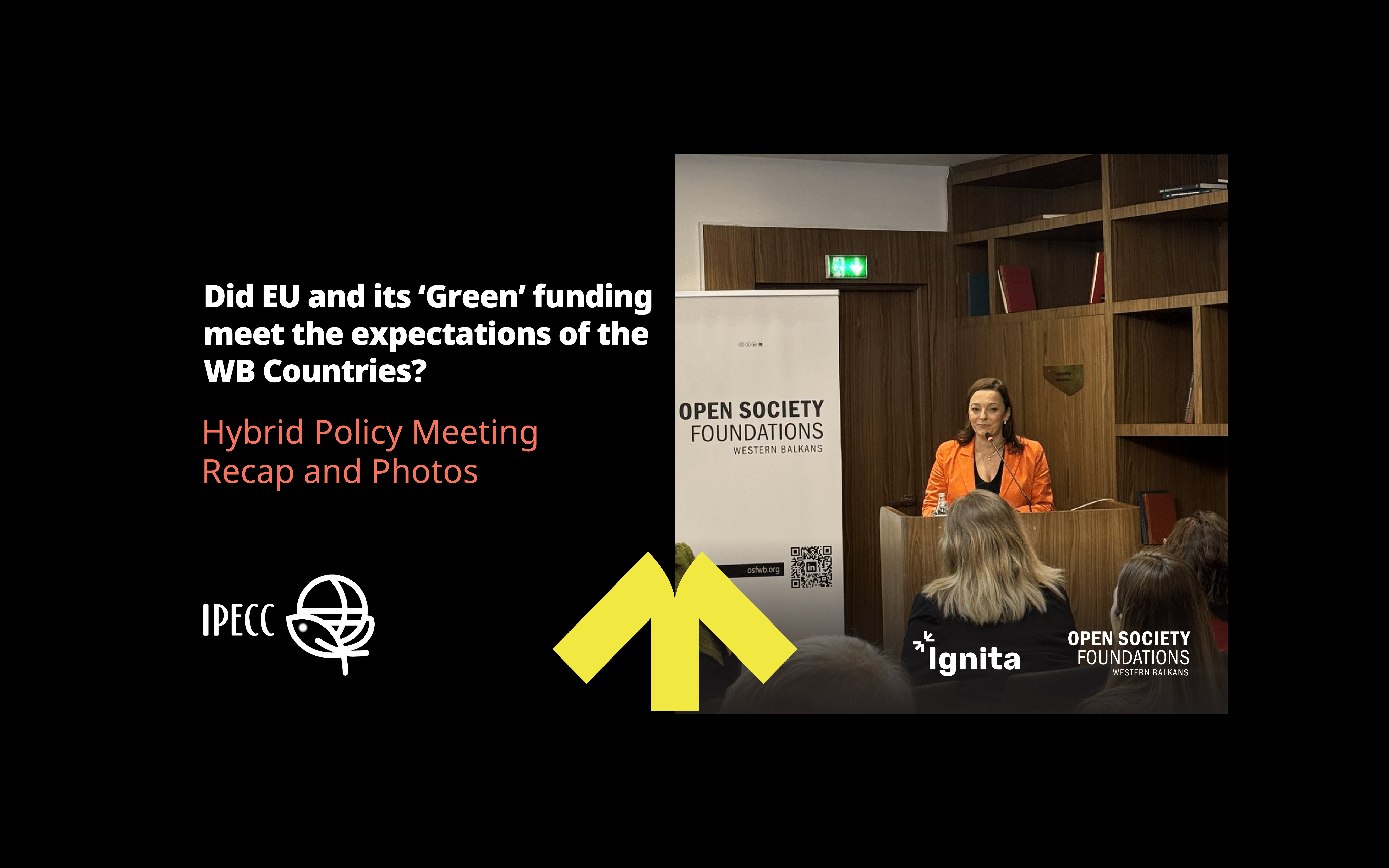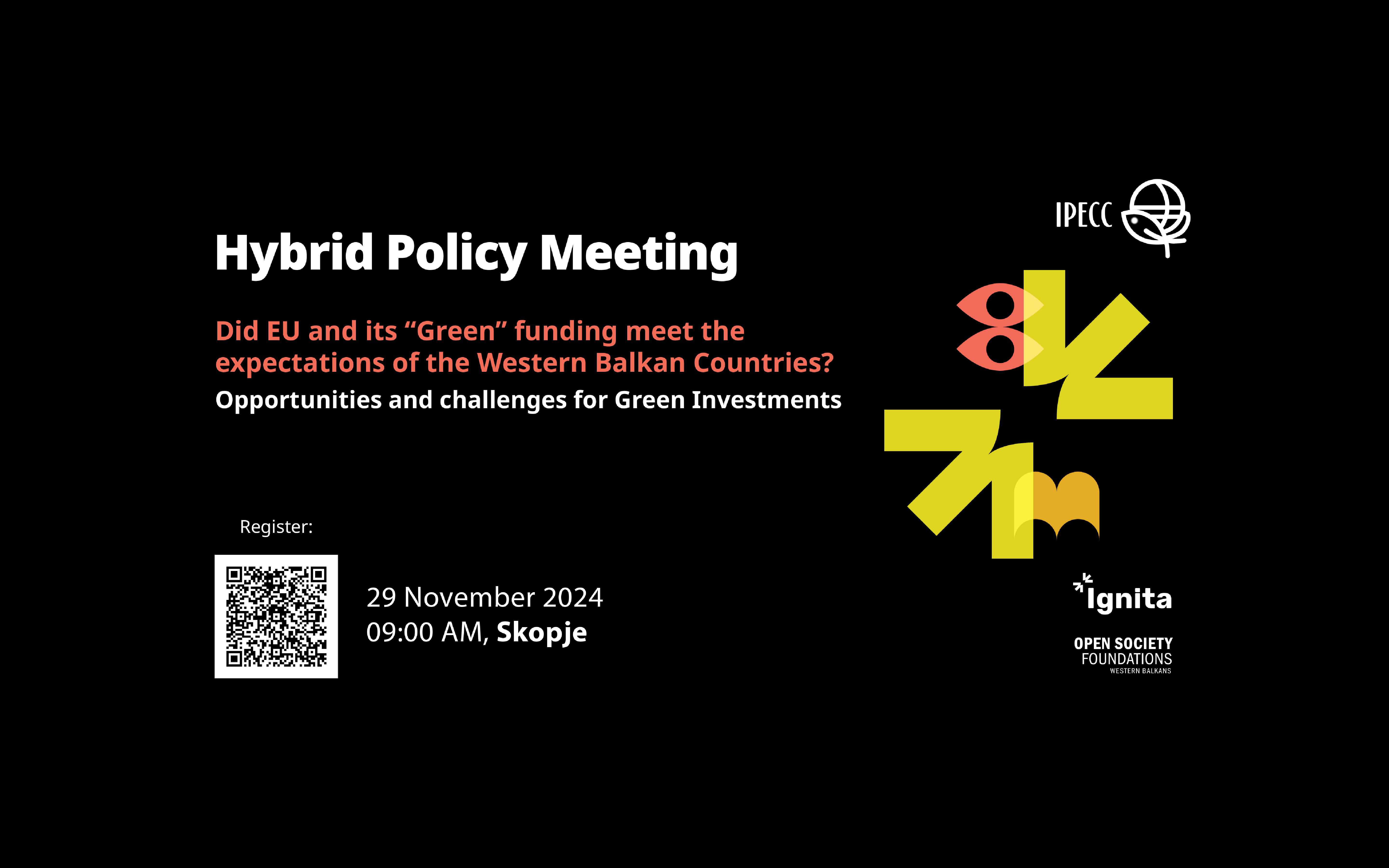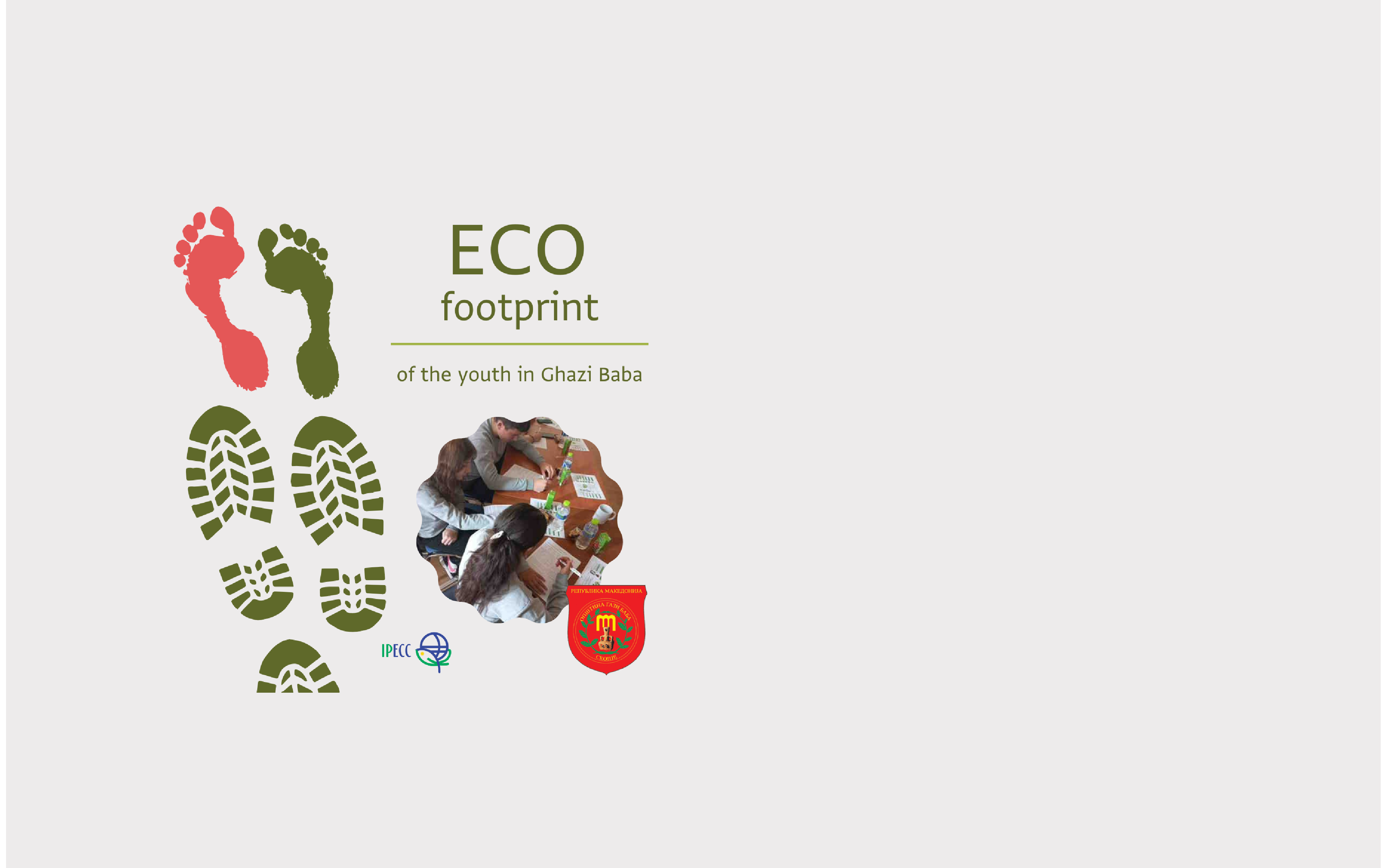On May 16, 2025, a public event titled “Advancing the Green Infrastructure in the Western Balkans” was held in Skopje, organized by the Institute for Good Governance and Environmental and Climate Policy (IPECC) with the support of the Open Society Foundation – Western Balkans (OSF-WB), within the framework of the Ignita Initiative.
The event served as an important platform for dialogue and exchange of good practices in the field of green infrastructure, seen as a prerequisite for climate resilience, economic development, and the European integration of the Western Balkan region.
The event brought together high-level representatives from the governments of the Western Balkans, EU institutions, civil society, international partners, and green transition experts. The main focus was placed on enhancing investments in green infrastructure, meeting requirements stemming from the EU negotiations for Chapter 27 and ensuring sufficient capacity of the respective administration in the WB. In this context, panelists also shared their perspectives on the key challenges and bottlenecks that continue to hinder effective absorption of IPA III funds in the WB Region. Discussions focused on practical experiences and lessons learned, aiming to inform the design and implementation framework of the future Pre-accession Instrument in the post-2027 EU Financial Perspective, particularly regarding the implementation of green investments.
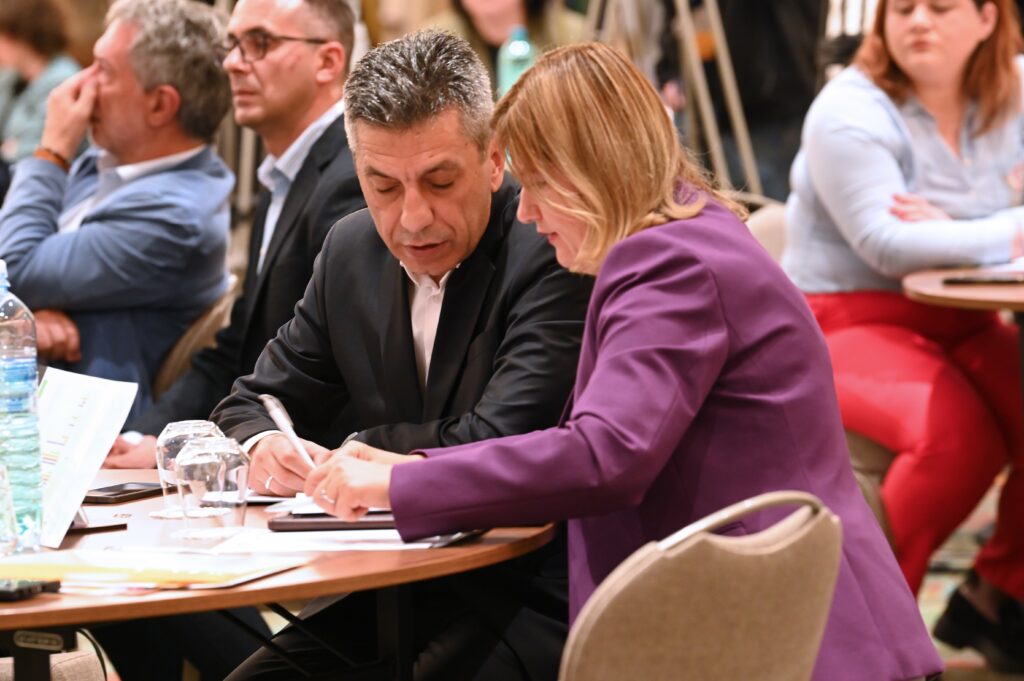
The First Deputy Prime Minister and Minister of Environment and Physical Planning, Mr. Izet Mexhiti, emphasized the importance of building sustainable infrastructure as a necessity, not a choice. He stated: “The way we design our infrastructure projects directly affects quality of life, economic stability, environmental protection, and the resilience of our communities to climate change. Strategic investments in infrastructure that consider climate risks and biodiversity aspects are powerful tools for accelerating economic development, creating new green jobs, fostering innovation, and achieving the Sustainable Development Goals by 2030.”
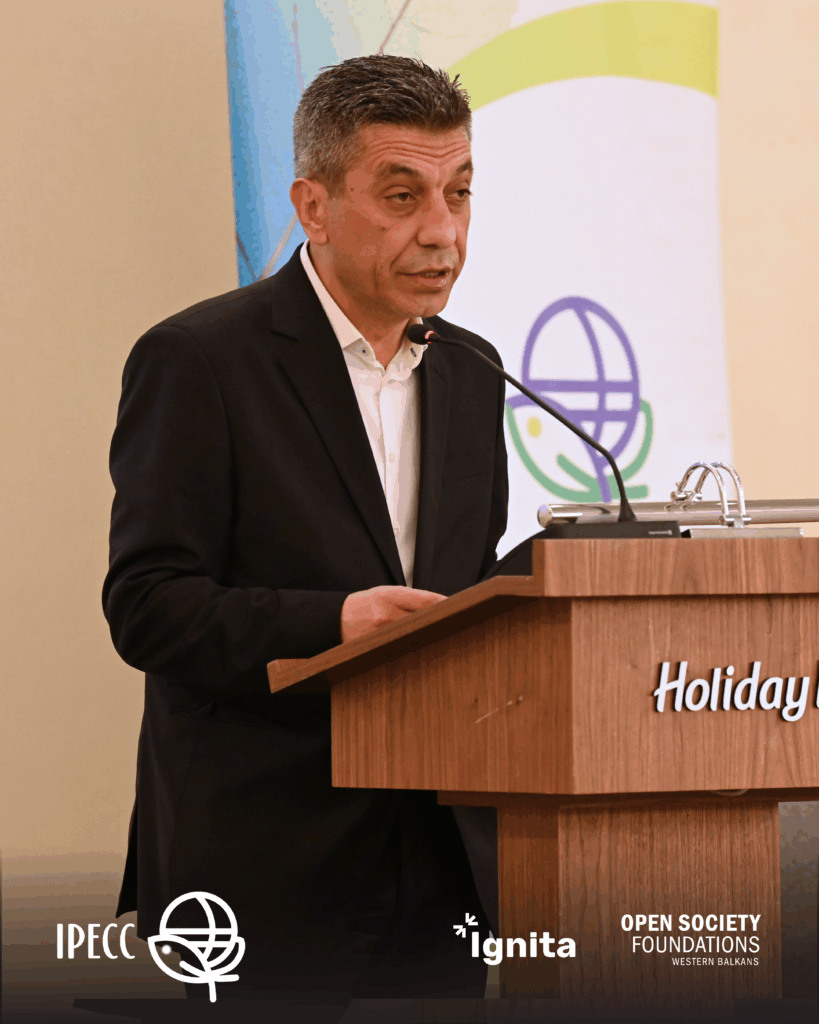
Minister of Energy, Mining and Mineral Resources, Ms. Sanja Božinovska, stressed that heavy industry must transform into a driver of sustainability: “Strategic investments in green infrastructure accelerate economic growth and are a key part of the path toward full EU membership for the Western Balkans.”

Ms. Jadranka Ivanova from IPECC called for strengthened intersectoral and interregional cooperation: “Green infrastructure is a vital component of the Green Agenda for the Western Balkans, and its implementation must be strategic, financially sustainable, and inclusive of all relevant stakeholders, including citizens and local communities.”
![]()

![]()
From OSF-WB, Ms. Adrijana Lavchiska highlighted the importance of civil society as a bridge between policies and community needs: “Supporting sustainable projects and policies that ensure a cleaner environment, green jobs, and a just transition is at the core of our mission.”
Representatives of the EU Delegations in the Western Balkan countries and regional institutions emphasized the need to strengthen administrative capacity for implementing investments, as well as to enhance coordination among national institutions, economic operators, and local governments.
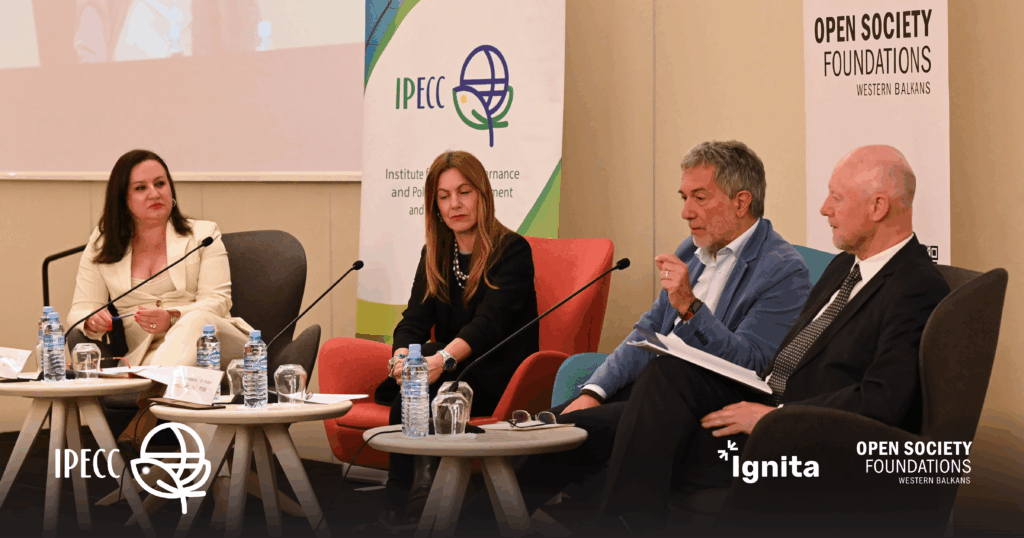
The event concluded with a clear message: A partnership-based approach between national authorities and the European Commission services is essential for enhancing the effectiveness of IPA implementation and accelerating the progress of green investments. Moreover, partnership is one of the key principles while implementing the EU Cohesion Policy, which is another reason why IPA is preparing the WB for the future EU membership. Only through a strategic approach, integration of climate risks into all policies, and strong collaboration between the public and private sectors can a sustainable and green future for the region be achieved.
![]()
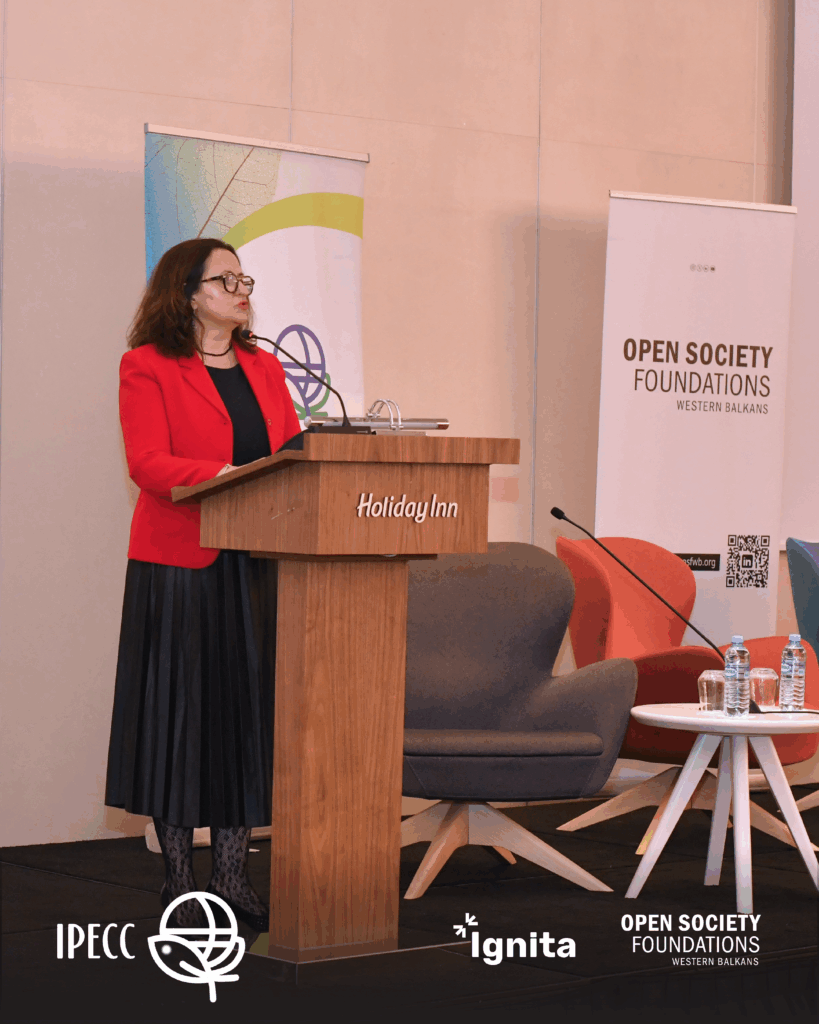

![]()
![]()
![]()

